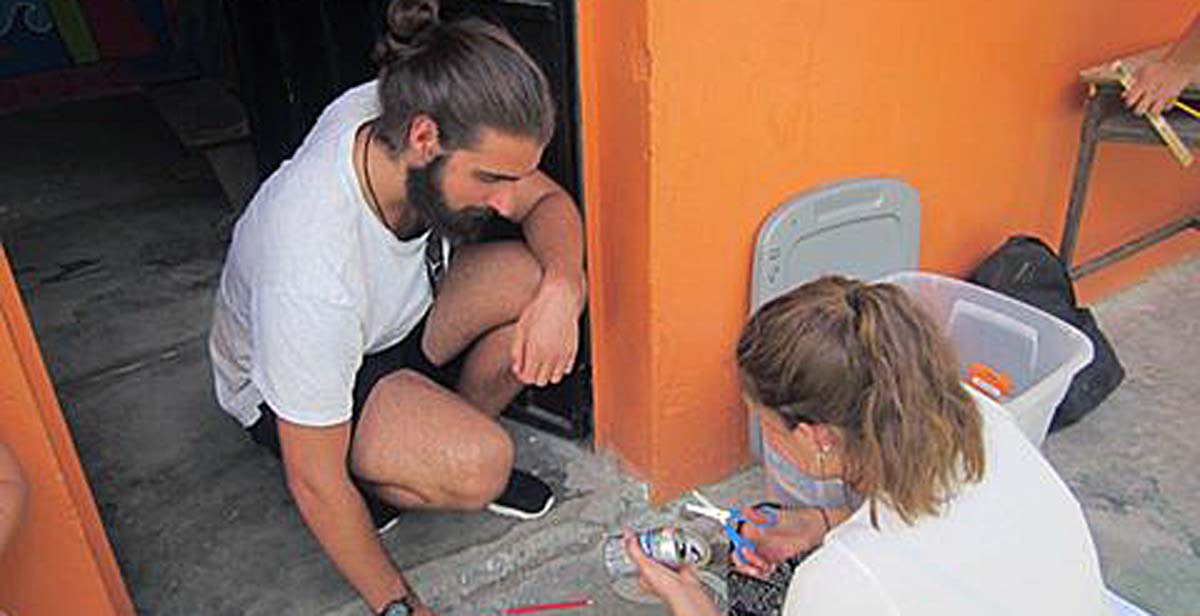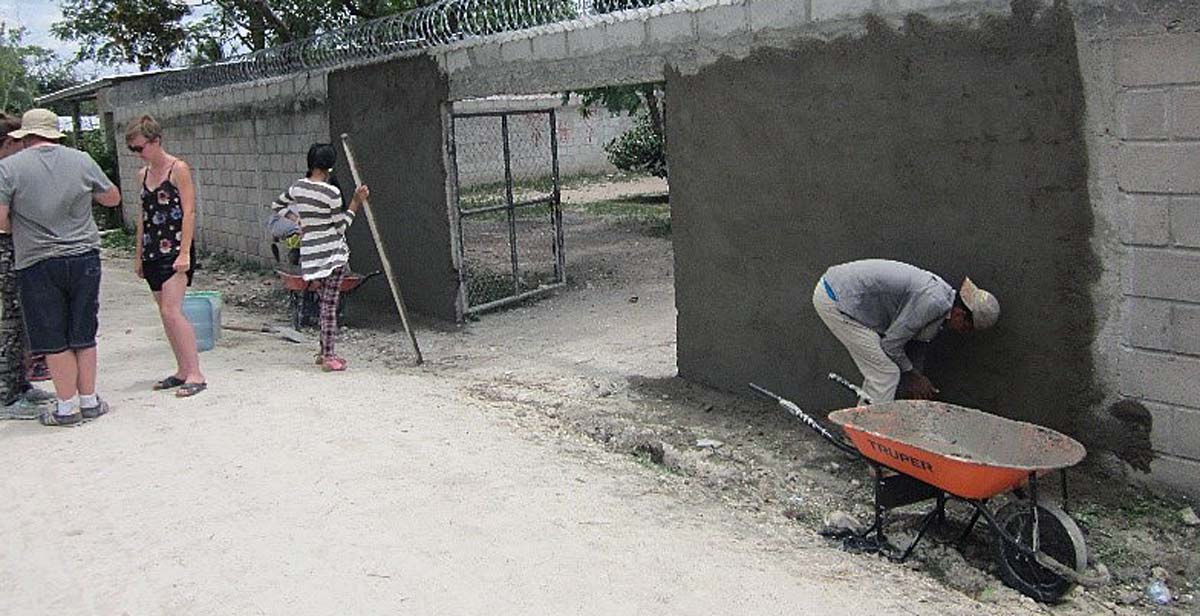Progressio and Glasswing can be considered grassroots development charities who focus on working within communities to try and equip them with both the physical materials, but also the confidence and knowledge to tackle the key issues that they themselves have highlighted. This is in contrast with some of the work of larger organisations such as the UN agencies, or global NGO’s such as Oxfam and UNICEF, who often focus on high level issues, such as corruption within the government and larger scale issues within broad areas such as health, education and sanitation, often identified by overseas governments or development workers. Both strategies have relative strengths and weaknesses, and the experience of being in Honduras and working on a grassroots project has caused us to reflect more on which is most effective.

One of the principal benefits of grassroots work is that by working with the community you can both identify the key issues to the people there, and also try to involve them in the work so it can continue to have a positive impact after aid and development workers have left. This is a highly relevant aspect of our project. While we are here, the nationals and the UK volunteers are running extracurricular clubs to increase the childrens’ enthusiasm for learning, teach them new skills and hopefully increase school attendance. However, Glasswing and Progressio are only working in this community for nine months and so a key goal of the projects, and a mark of its success, is if we can encourage ex-national volunteers and other members of the community to continue the clubs into the future. Clearly this benefit of grassroots work is only applicable when projects are carefully planned with long-term impact in mind.
A further advantage of such work is that the actual experience of dealing with grassroots development workers, for example the interaction between the national and UK volunteers with our host communities on our current project, may inspire local people to become more active within their own communities, for example organising community projects and events, or even shaping future careers in this sector.

However, there are limits to the potential impact local level development projects can have. For example, it is argued that in Honduras corruption is a major problem, hugely reducing the money available for public services such as healthcare and education. The impact of this can be clearly seen in the school we are currently working at, which is run-down, lacking resources and has suffered staffing problems as teachers’ salaries are often not paid. Such issues, which have a widespread impact across Honduras, cannot be tackled at the community level – such projects can treat only the symptoms and not the cause of the problem. Here, it seems that there is a clear role for larger institutions, focusing on development at a regional or even nationwide level. Such projects, however, are often criticised for the long timescale needed to bring about significant change, and because foreign workers who have never experienced the everyday problems citizens face may not address the issue that really matter to people, or may be insensitive to cultural norms and historical factors.
Overall then it is clear that there is no black and white answer when it comes to development. Different organisations have different aims, achieve different things and suffer from different problems. What perhaps can be learnt is the value of local knowledge to development projects and encouragingly there does seem to be a shift in the development sector at the moment towards ‘home grown’ development workers, and consultation with communities before major projects are implemented.
Written by ICS volunteer Maya Fooks



